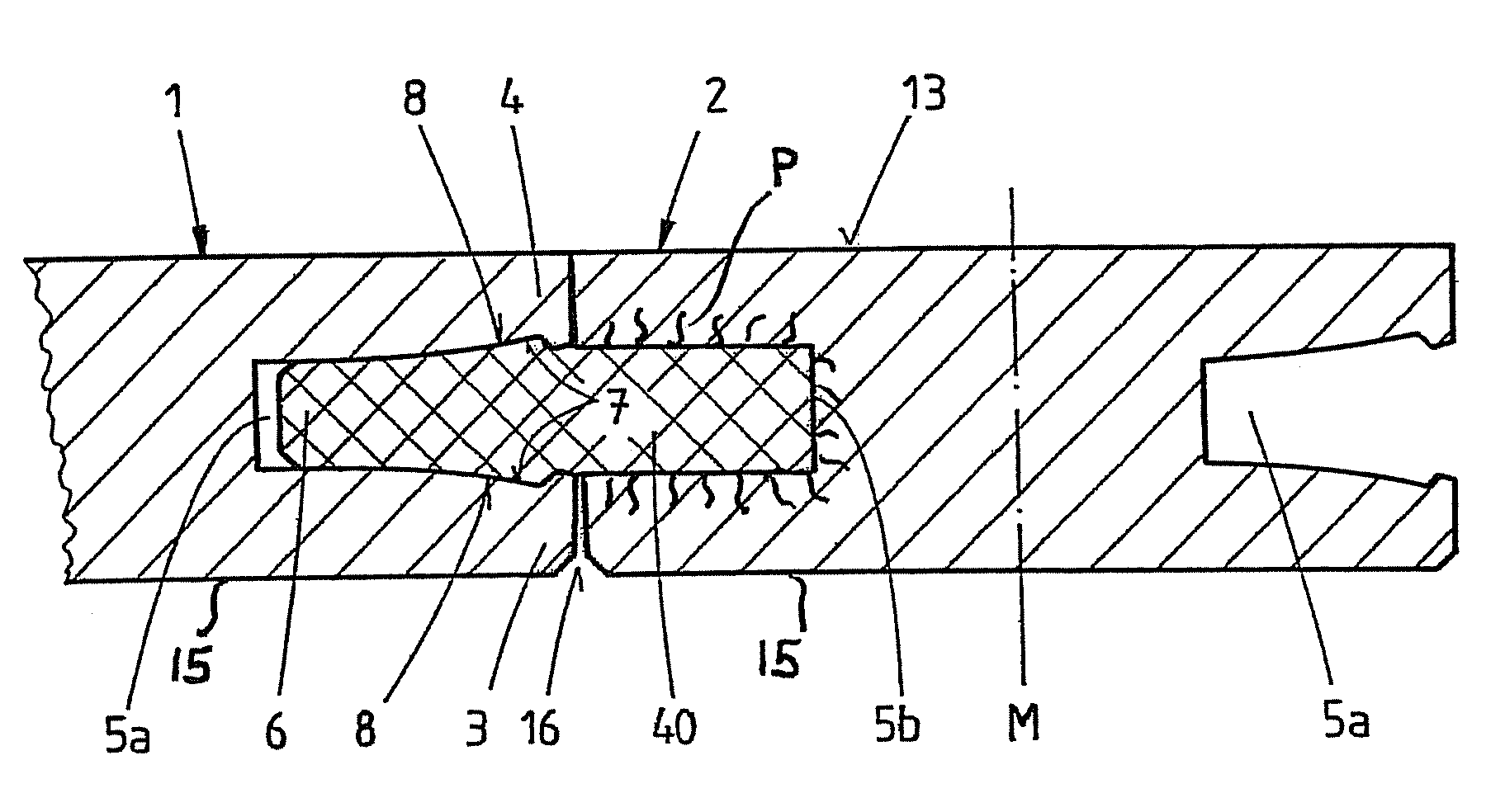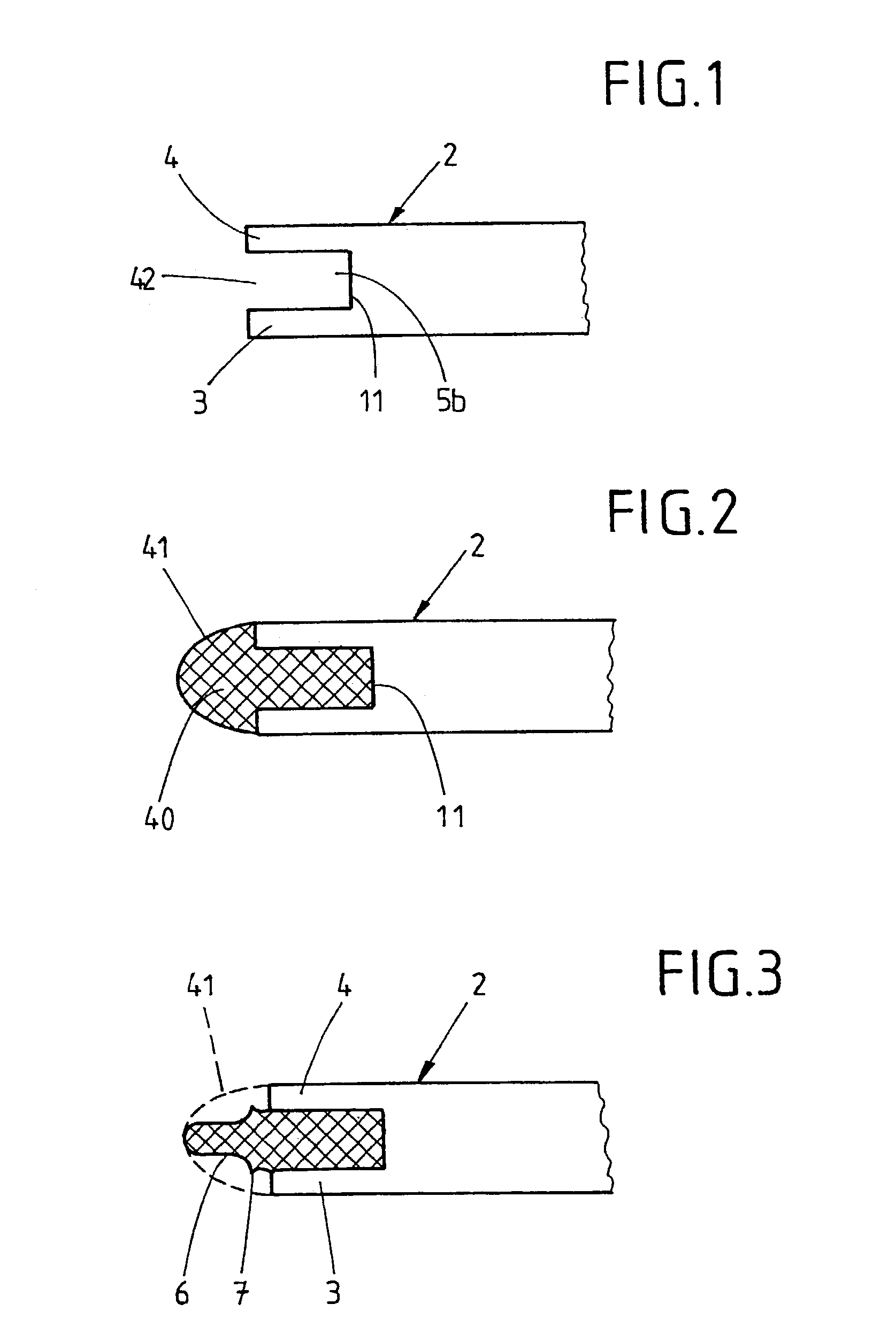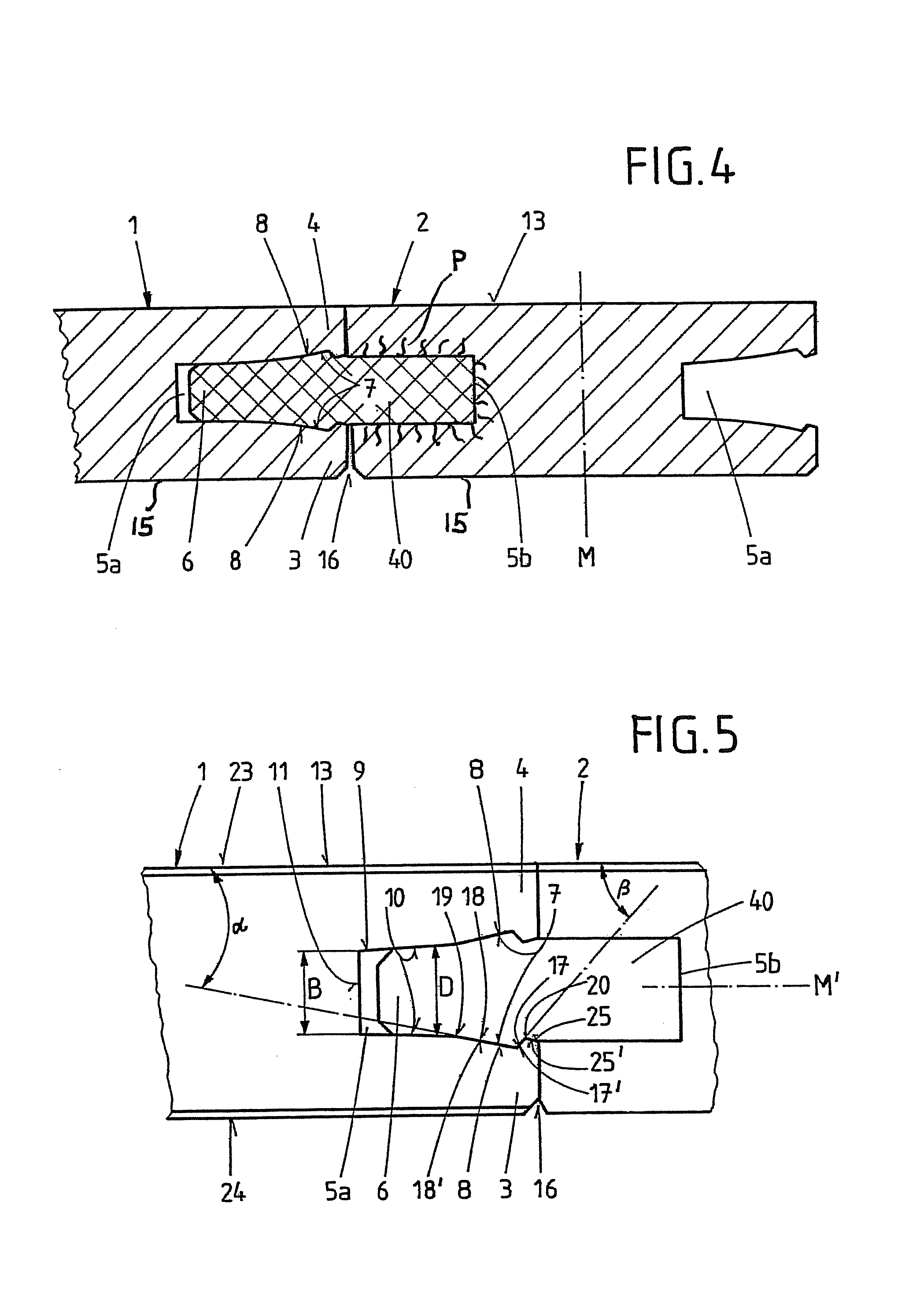Arrangement of building elements with connecting means
- Summary
- Abstract
- Description
- Claims
- Application Information
AI Technical Summary
Benefits of technology
Problems solved by technology
Method used
Image
Examples
Embodiment Construction
[0073]FIG. 1 shows a cross-section of the left-side, free end of an MDF / HDF panel in the region of a longitudinal or transverse side. The left, end face 42 of the panel 2 provides a groove 5b manufactured, for example, by milling. The interior surfaces of the groove 5b are therefore formed by the two equally long arms 3 and 4, and by the base of the groove 11.
[0074]FIG. 2 shows the panel from FIG. 1 after the extrudate 40 has been introduced into the groove 5b. The extrudate 40 was introduced into the groove in a liquid and / or soft condition and fills the groove completely, that is, down to the base of groove 11. The extrudate is firmly connected to the panel via the arms 3,4 and the base of groove, because the extrudate has penetrated into the pores of the panel and / or has filled any irregularities in the interior of groove. The extrudate may also provide the property of foaming. If the extrudate is readily pourable, it should be poured from above into the groove 5b when the groove...
PUM
| Property | Measurement | Unit |
|---|---|---|
| Angle | aaaaa | aaaaa |
| Angle | aaaaa | aaaaa |
| Length | aaaaa | aaaaa |
Abstract
Description
Claims
Application Information
 Login to View More
Login to View More - R&D
- Intellectual Property
- Life Sciences
- Materials
- Tech Scout
- Unparalleled Data Quality
- Higher Quality Content
- 60% Fewer Hallucinations
Browse by: Latest US Patents, China's latest patents, Technical Efficacy Thesaurus, Application Domain, Technology Topic, Popular Technical Reports.
© 2025 PatSnap. All rights reserved.Legal|Privacy policy|Modern Slavery Act Transparency Statement|Sitemap|About US| Contact US: help@patsnap.com



